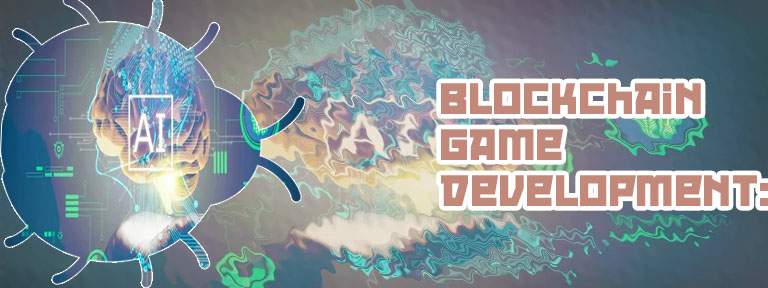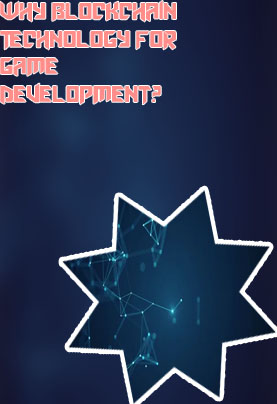|
As blockchain technology continues to revolutionize various industries, the gaming sector is not far behind in embracing its potential. One of the key players in this space is a blockchain gaming creator company that is developing its programming language to enhance the gaming experience for users. To delve deeper into this innovative approach, here are four articles that offer insights into how this company is paving the way for the future of blockchain gaming:
Inside the Mind of a Blockchain Gaming Creator: Building a New Programming Language

Blockchain technology has revolutionized various industries, and the gaming sector is no exception. In recent years, blockchain gaming has gained significant traction due to its decentralized nature and the ability to provide players with true ownership of in-game assets. However, creating blockchain games comes with its own set of challenges, especially when it comes to programming languages.
Developing blockchain games requires the use of specialized programming languages that can interact with smart contracts and the blockchain network. This is where the role of a blockchain gaming creator becomes crucial. These individuals possess a deep understanding of both blockchain technology and game development, allowing them to bridge the gap between these two worlds.
One such creator is pioneering the industry by building a new programming language specifically tailored for blockchain gaming. This language aims to simplify the game development process while ensuring security and transparency for players. By leveraging blockchain technology, developers can create games that offer unique features such as provable fairness and immutable in-game assets.
In conclusion, the development of a new programming language for blockchain gaming is a significant step towards unlocking the full potential of this emerging industry. By allowing developers to easily integrate blockchain technology into their games, this innovation has the power to reshape the gaming landscape and create new opportunities for players worldwide. This article sheds light on the importance of understanding the technical aspects of
The Evolution of Blockchain Technology in Gaming: A Look at the Latest Programming Language Innovations
Blockchain technology has been making waves in various industries, and the gaming sector is no exception. The integration of blockchain technology in gaming has led to a number of exciting developments, with the latest programming language innovations playing a key role in shaping the future of the industry.
One of the most significant advancements in blockchain technology for gaming is the introduction of smart contracts. These self-executing contracts are stored on a blockchain and automatically enforce the terms of an agreement. Smart contracts have revolutionized the way in-game transactions are conducted, offering increased security and transparency for players.
Another major development in blockchain technology is the emergence of new programming languages tailored specifically for smart contract development. These languages, such as Solidity and Vyper, allow developers to write secure and efficient smart contracts that can be seamlessly integrated into gaming platforms.
The use of blockchain technology in gaming is particularly important for the industry as it provides a secure and transparent way to conduct in-game transactions, prevent fraud, and protect player assets. By leveraging the latest programming language innovations, developers can create unique gaming experiences that are powered by blockchain technology, revolutionizing the way games are played and enjoyed.
Unleashing the Power of Blockchain: How a Gaming Creator Company is Changing the Game with its New Language
In today's digital age, the potential of blockchain technology is being harnessed by various industries to revolutionize the way we do things. One such company that is spearheading this change is a gaming creator company that has developed its own unique blockchain-powered language.
By leveraging blockchain technology, this company is able to create a secure and transparent gaming ecosystem that empowers players and developers alike. The use of blockchain ensures that all transactions are recorded on a decentralized and tamper-proof ledger, providing a level of security and trust that was previously unimaginable in the gaming industry.
One of the key advantages of this new language is its ability to enable smart contracts, which are self-executing contracts with the terms directly written into code. This eliminates the need for intermediaries and streamlines the gaming experience for all parties involved.
Furthermore, by utilizing blockchain technology, this company is able to tokenize in-game assets, allowing players to truly own and trade their digital assets outside of the game environment. This not only gives players more control over their gaming experience but also opens up new revenue streams for developers.
In conclusion, the innovative use of blockchain technology by this gaming creator company is truly changing the game for the industry as a whole. The implementation of a new language powered by blockchain has the potential to
From Code to Play: The Journey of Building a Programming Language for Blockchain Gaming
Blockchain technology continues to revolutionize various industries, and the gaming sector is no exception. With the rise of blockchain gaming, developers are constantly seeking new ways to create immersive and secure gaming experiences. In "From Code to Play," the journey of building a programming language tailored for blockchain gaming is meticulously detailed, shedding light on the complexities and challenges of this innovative venture.
One of the key takeaways from the book is the importance of security in blockchain gaming. By utilizing a specialized programming language, developers can ensure that gaming platforms are protected against hacks and fraud, providing players with a safe and reliable environment to enjoy their favorite games. Additionally, the book emphasizes the significance of decentralization in blockchain gaming, allowing for greater transparency and fairness in gameplay.
Furthermore, "From Code to Play" highlights the impact of smart contracts on the gaming industry. By incorporating smart contracts into gaming platforms, developers can automate various processes such as payments and in-game transactions, streamlining the gaming experience for players. Overall, the book serves as a valuable resource for developers looking to tap into the potential of blockchain technology in gaming.
In conclusion, "From Code to Play" offers a comprehensive look into the intricate process of building a programming language for blockchain gaming. With an emphasis on security, decentralization, and smart contracts
|

